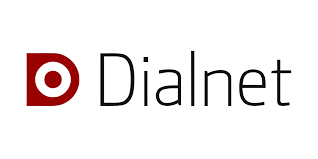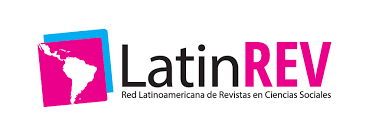Inteligencia Artificial en los procesos de Investigación de las Carreras Física-Matemática y Matemáticas
DOI:
https://doi.org/10.18050/eduser.v11n1a2Palabras clave:
inteligencia artificial, investigación, resolución de problemas, carreras física-matemática, matemáticas, estudiantesResumen
El estudio reportado en este artículo investigó el uso de la inteligencia artificial (IA) en los procesos de investigación dentro de los campos de Física-Matemática y Matemáticas. Se recopilaron datos de 78 estudiantes mediante cuestionarios, revelando que ambos grupos hacen un amplio uso de la IA. La investigación encontró que los investigadores en Física-Matemática y Matemáticas están empleando herramientas de inteligencia artificial, como el aprendizaje automático y el procesamiento del lenguaje natural, para analizar datos, modelar fenómenos y generar predicciones, lo que está mejorando la eficiencia y precisión de sus procesos de investigación. El estudio no encontró diferencias significativas entre los campos de Física-Matemática y Matemáticas en cuanto al uso de inteligencia artificial en sus procesos de investigación. Los estudiantes de Matemáticas la aplican principalmente para la redacción y resolución de problemas matemáticos, mientras que los de Física-Matemática la utilizan en la modelización de sistemas físicos y la simulación de experimentos. Estos hallazgos resaltan la importancia de la IA en ambas carreras y sugieren la necesidad de su inclusión en el currículo para mejorar la formación de los estudiantes en estos campos.
Descargas
Referencias
Aparicio, W. O. (2023). La Inteligencia Artificial y su Incidencia en la Educación: Transformando el Aprendizaje para el Siglo XXI. Revista Internacional de Pedagogía e Innovación Educativa, 3(2), 217–230. https://doi.org/10.51660/ripie.v3i2.133
Arias, F. G. (2012). El proyecto de investigación. Introducción a la metodología científica. (Sexta ed.). EPISTEME.
Cabezas, E. D., Andrade, D., & Torres, J. (2018). Introducción a la Metodología de la Investigación Científica. Universidad de las Fuerzas Armadas ESPE.
Cárdenas, J. (2023). Inteligencia artificial, investigación y revisión por pares: escenarios futuros y estrategias de acción. Revista española de sociología, 32(4), a184. https://doi.org/10.22325/fes/res.2023.184
Cordero, M. Á. (2024). Inteligencia Artificial en el aula: oportunidades y desafíos para la didáctica de la matemática y física universitaria. Revista Internacional de Pedagogía e Innovación Educativa, 4(1), 193–207. https://doi.org/10.51660/ripie.v4i1.154
Fajardo, G. M., Ayala, D. C., Arroba, E. M., & López, M. (2023). Inteligencia Artificial y la Educación Universitaria: Una revisión sistemática. Magazine de las Ciencias: Revista de Investigación e Innovación, 8(1), 109–131. https://doi.org/10.33262/rmc.v8i1.2935
Gil, J. A. (2016). Técnicas e instrumentos para la recogida de información. Madrid: Universidad Nacional de Educación a Distancia.
González-González, C. (2023). El impacto de la inteligencia artificial en la educación: transformación de la forma de enseñar y de aprender. Revista Qurriculum, 51-60. https://doi.org/10.25145/j.qurricul.2023.36.03
Herrera, C. J. (2019). Estadística y probabilidades. Unpublished.
Magallanes, K. K., Plúas, L. d., Aguas, J. F., y Freire, R. L. (2023). La inteligencia artificial aplicada en la innovación educativa en el proceso de enseñanza y aprendizaje. LATAM Revista Latinoamericana De Ciencias Sociales Y Humanidades, 4(2), 1597–1613. https://doi.org/10.56712/latam.v4i2.706
Moral-Sánchez, S. N., Ruiz Rey, F. J., y Cebrián-de- la-Serna, M. (2023). Análisis de chatbots de inteligencia artificial y satisfacción en el aprendizaje en educación matemática. International Journal of Educational Research and Innovation (IJERI), (20), 1-14. https://doi.org/10.46661/ijeri.8196
Pinargote, M. A., Solorzano, C. V., Ruilova, N. A., & Bulgarín, R. M. (2023). Inteligencia artificial en el contexto de la formación docente. RECIAMUC, 7(4), 153–161. https://doi.org/10.26820/reciamuc/7.(4).oct.2023.153-161
Sánchez, M. Z., Mejías, M., y Olivety, M. (2022). Diseño de metodologías mixtas una revisión de las estrategias para combinar. Revista Electronica Human@s Enfermería en Red, 3, 10-13. https://www.portal.uasj.unpa.edu.ar/_files/ugd/f9834d_784cc19611714c87890006bc7cb4715d.pdf#page=10
Tamayo, Ly, C., & Silva, I. (2012). Técnicas e Instrumentos de Recolección de Datos. https://orbita.bo/books/tecnicas-e-instrumentos-de-recoleccion-de-datos/
Triminio-Zavala, C. M., Herrera-Castrillo, C. J., & Medina-Martínez, W. I. (2024). Formación investigativa del estudiante universitario en el Modelo por competencia de UNAN-Managua. Revista Científica de FAREM-Estelí, 48, 108–128. https://doi.org/10.5377/farem.v12i48.17529
Valle, A., Manrique, L., & Revilla, D. (2022). La Investigación Descriptiva con Enfoque Cualitativo en Educación. Pontificia Universidad Católica del Perú.
Archivos adicionales
Publicado
Número
Sección
Licencia
Derechos de autor 2024 Cliffor Jerry Herrera Castrillo

Esta obra está bajo una licencia internacional Creative Commons Atribución 4.0.














